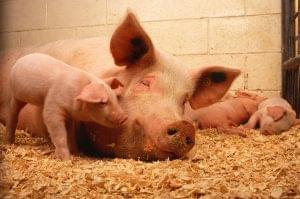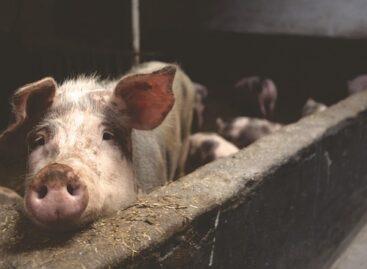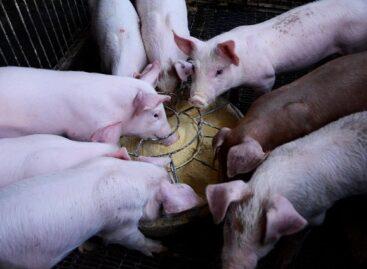The pork sector is in a difficult situation: rising costs, falling consumption and changing habits
The domestic and EU pork sector has been facing challenges for years, hit by rising procurement and energy prices, falling consumption, and a changing social perception of the sector. Tamás Éder, president of the Hungarian Meat Producers’ Association (Meat Association), spoke to Agrarszéktor about this. The expert will also participate in the Portfolio Agricultural Sector Conference in Siófok this year, where key topics such as the issue of African swine fever, the effects of trade agreements between the EU and third countries, and improving the competitiveness of the sector will be on the agenda – Agrárszektor writes.
Declining production and prolonged difficulties in the EU
 The pork sector in the European Union has been in continuous decline in recent years, accompanied by declining production and economic difficulties. According to the data, the number of pig slaughters decreased significantly, by around 12%, between 2021 and 2023. Although a slight increase of 1.5% was observed in the number of slaughters until May 2023, this is more of an exceptional improvement than a reversal of the negative trend. The falling production is due to the price increase of the last two years, which has significantly increased the cost of production, making it increasingly difficult for the meat industry to operate sustainably.
The pork sector in the European Union has been in continuous decline in recent years, accompanied by declining production and economic difficulties. According to the data, the number of pig slaughters decreased significantly, by around 12%, between 2021 and 2023. Although a slight increase of 1.5% was observed in the number of slaughters until May 2023, this is more of an exceptional improvement than a reversal of the negative trend. The falling production is due to the price increase of the last two years, which has significantly increased the cost of production, making it increasingly difficult for the meat industry to operate sustainably.
Tamás Éder pointed out that the situation of the sector is aggravated by the increase in the price of live pigs, which is accompanied by increases in energy and labor costs. The players in the sector have not been able to fully implement these increased costs in consumer prices, which is worsening the profitability of companies.
Declining consumption and changing habits
The difficulties of the sector are also exacerbated by the transformation of consumer habits. The decline in pork consumption in the western and northern countries of the European Union is primarily due to lifestyle changes. Environmental and ethical concerns, as well as a health-conscious lifestyle, are prompting more and more people to reduce their meat consumption. However, in Hungary, there are more prosaic reasons for the decrease: the income situation of the population and the rise in food prices are the main factors.
Due to the drastic increase in food prices, consumers have cut back on their spending, especially on meat products. In addition, it can be observed that consumers have turned to lower-quality, cheaper products. The resulting low turnover has also brought about structural changes: they are buying less, and more from more cost-effective product categories.
Related news
AKI: Retail purchase price of pork decreased at the beginning of the year
🎧 Hallgasd a cikket: Lejátszás Szünet Folytatás Leállítás Nyelv: Auto…
Read more >








